Melbourne Espresso: Where 'everything old is new again'
In the vibrant city of Melbourne, the love affair with coffee began in 1957 when Pellegrini’s Espresso Bar installed the city's first espresso machine in the heart of Bourke Street. This marked the beginning of Melbourne’s journey to becoming a global coffee mecca. With an hour to spare before the doors opened to the 2024 Melbourne International Coffee Expo, I decided to embark on a quick tour of this iconic city to see how the espresso culture has evolved.

A taste of history at Pellegrini’s
Pellegrini’s retains its original charm, evoking a sense of nostalgia. Walking under the famous neon sign, I took a seat on one of the iconic red velvet stools at the long benchtop, where the espresso machine stands like a grand piano in a hotel lobby. Local customers gathered at the northern end of the bar, chatting about football and the day’s fresh pasta already coming out of the kitchen. The barista, David, dressed in a crisp white button-up shirt as his founders did, served me an espresso that epitomised the venue’s understated charm. The espresso, a dark roast with hints of dark chocolate and a toasty finish, staying true to its Italian heritage.

As I savoured my espresso, the lively streets outside added to the ambiance. David shared stories about the city’s life and colorful characters, highlighting the centrality of Pellegrini’s in Melbourne’s evolving landscape. Despite the changing times, Pellegrini’s remains a timeless fixture in the city, blending history, culture, and coffee.
Modern elegance at Market Lane Coffee
Leaving Bourke Street, I ventured to Collins Street, where I discovered the elegant Market Lane Coffee.

The small space, adorned with earthy green wallpaper and marble, exuded modern charm with a vintage palate. Young professionals and artists alike filled the space, waiting for their expertly crafted coffee.

I ordered a single origin espresso from Rwanda, a syrupy brew with notes of orange peel, lemon, and apricot. The meticulous preparation by a team of three baristas underscored the care and precision in every cup.

The intimate setting and thoughtful touches, like a homage to the women who grew the Rwandan coffee, added depth to the experience. Market Lane Coffee exemplified how new-age coffee culture can be both sophisticated and heartfelt.
Vibrant energy at Dukes Coffee
My final stop before the Coffee Expo was Dukes Coffee, nestled in one of Melbourne’s iconic laneways. The buzzing energy of the place was infectious.

The dark, mysterious space pulsed with life as a constant stream of customers came and went, greeted by name by the friendly staff. Dukes Roasters specialises in Organic Certified Coffee, offering a refreshing blend of old-school body with new-school sourcing methods.

I enjoyed the espresso serve of their House Blend. An earthy coffee with chocolate notes and nutty overtones. The quality and dedication to sustainable sourcing were evident in every sip. Dukes Coffee felt like a community, a place where the passion for coffee and connection thrived.
Reflecting on Melbourne’s coffee culture
Interestingly, all three venues shared similar layouts: long rectangular shapes with an espresso bar running down one side, a few quaint tables and chairs, and a large shop front window inviting passersby to peek inside. This consistency in design highlights how Melbourne’s coffee culture, while evolving, remains rooted in creating intimate and welcoming spaces.
As I prepared to head to the Coffee Expo, I reflected on the rich tapestry of Melbourne’s coffee scene. Each venue, from the historic charm of Pellegrini’s to the modern elegance of Market Lane and the vibrant energy of Dukes, showcased the city‘s ability to blend tradition with innovation. Melbourne continues to drive forward, making history one espresso at a time.
Keen to experience this walk through Melbourne coffee history for yourself? Below is a map showing the 3 venues.


















